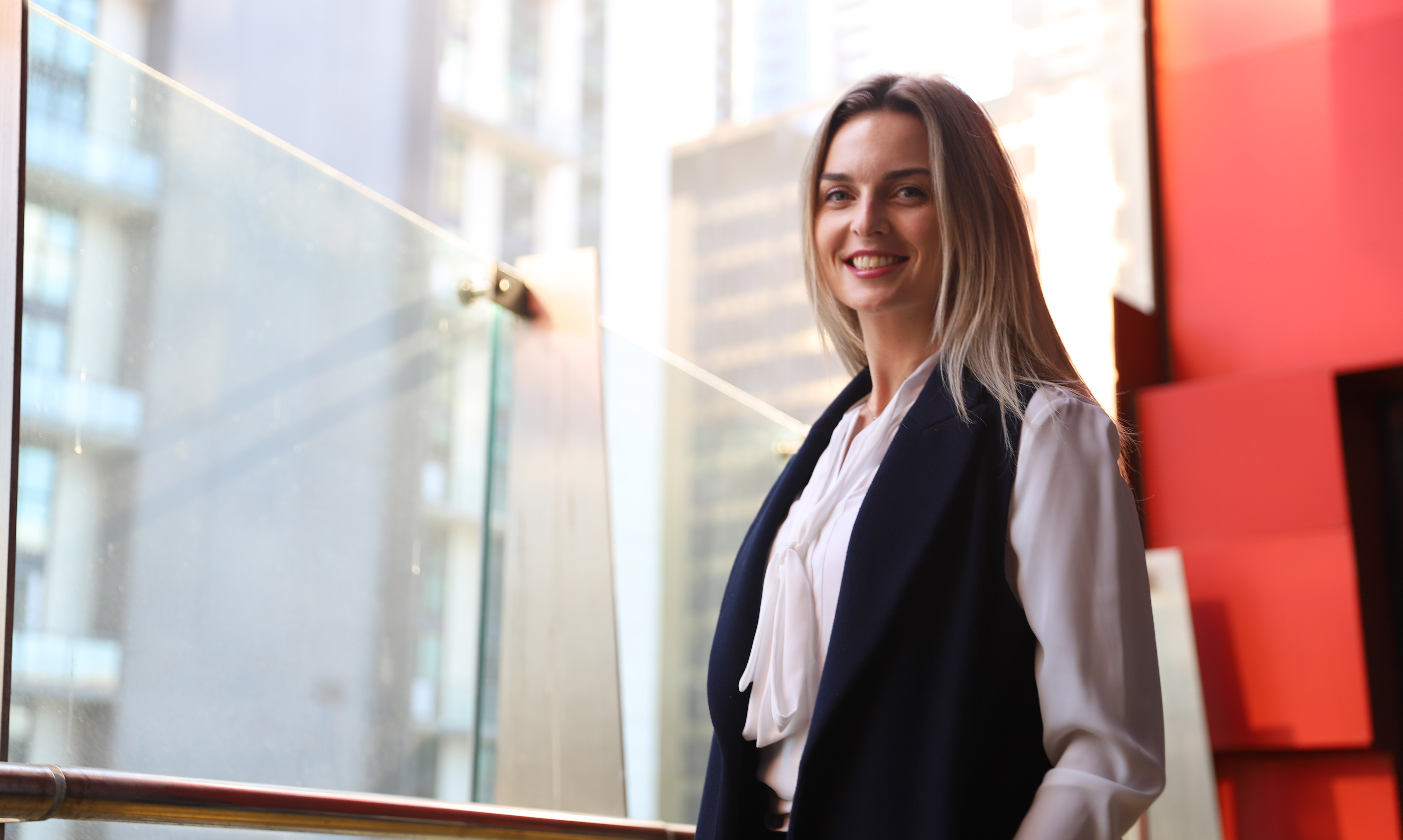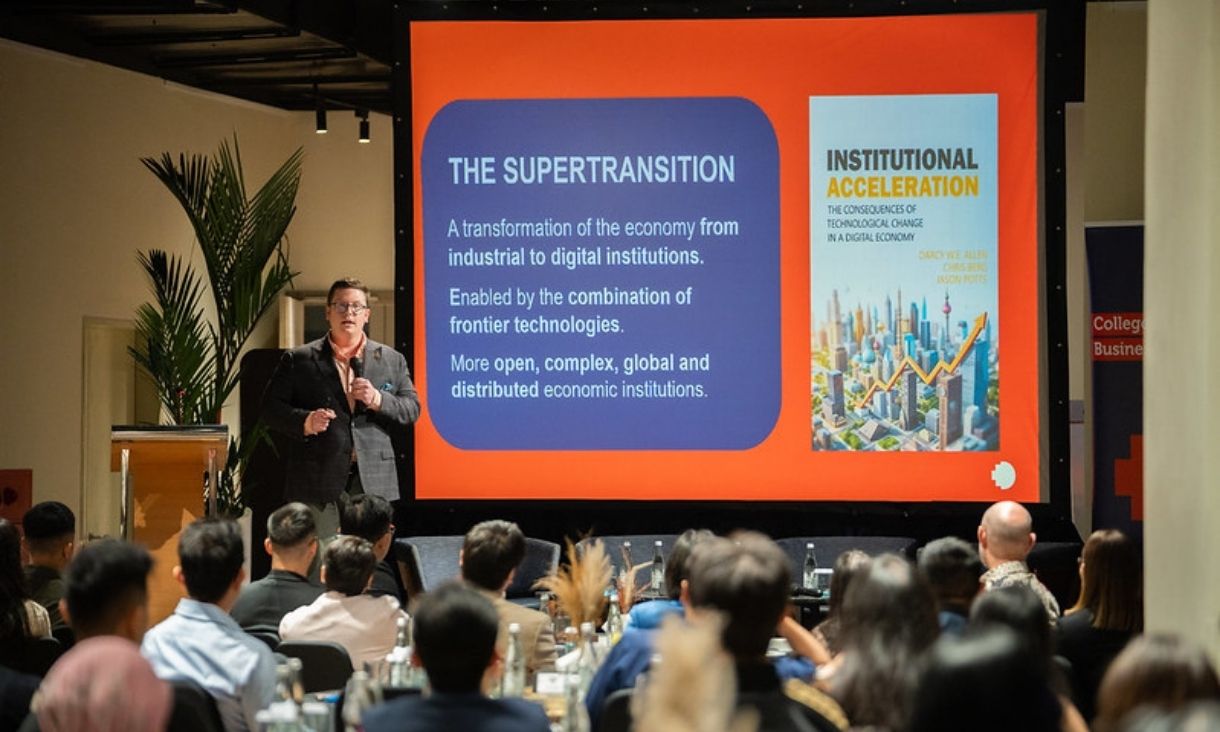Blockchain, the technology behind the cryptocurrency Bitcoin, has been referred to as one of the most disruptive innovations and impactful technologies developed in recent years.
“Blockchain is basically an accounting technology. It’s expected to have significant impacts on the future of accounting and auditing and may transform how transactions are processed, recorded, verified, reconciled and reported. That is why it is so important for accountants and auditors to keep track of the technological advancement and to understand how blockchain works,” Schmitz says.
She admits that discussing and consulting with industry leaders on high stakes issues like integrating blockchain technology into existing accounting systems was an intimidating experience at first.
“But the reality is in this space we’ve all just started, and we are all having ongoing debates about this new technology, which is what makes it so exciting.”
Schmitz came to Australia from Germany to undertake a PhD degree in Accounting, which she is just about to complete after just three years.
“German efficiency,” she says with a laugh.
But while Schmitz says she is honoured to be nominated, she’s most excited about the opportunity the nomination will give her to continue building networks.
“Australia’s a great country for this networking because people generally are so open minded, happy to share knowledge and insights and connect with people."
The reason she was attracted to RMIT for her doctoral studies was because of its excellent industry connections and practice-oriented research.
“RMIT provides great opportunities to bridge the gap between theory and practice, which I think is a crucial factor, especially for PhD students to become more marketable in the corporate world,” she says.
“The cross-disciplinary research approach at RMIT means that every day I’m discovering new things. Most of us work in an open office space which allows for engagement and collaboration between different schools, so we are able to learn from each other and apply these learnings in our own fields.
“RMIT is a bit like an incubator of knowledge, which I believe facilitates and enhances research by shedding light on different matters from different perspectives.”
Schmitz says blockchain is not a passing trend.
“I think blockchain technology offers lots of opportunities and advantages, accountants and auditors just need to understand how to deal with this technology and integrate it into their systems.”
Schmitz currently works for the RMIT Blockchain Innovation Hub and sits on the advisory board of Ledgerium, a start-up that works on blockchain solutions for accounting and auditing purposes.
She says one of the highlights of her work had been to give seminars on blockchain technology to accountants with RMIT’s Blockchain Innovation Hub Director, Professor Jason Potts.
“It’s really cool to speak to people with 20+ years’ of work experience in accounting because you can learn from them and create research projects around the issues practitioners are facing. For us as researchers, those conversations are crucial and valuable to direct and accelerate our research and ensure it is relevant for practitioners.”
“Based on all the questions accountants asked in our seminar, you can see how interested and excited they are about the blockchain development.”
“Big industry firms like Oracle have shown a lot of interest in blockchain and there is a lot of demand in industry for these skills. From meetings with firms such as Oracle that are at the forefront of the development of emerging technologies, I’ve learnt so much about how large corporations are seeing this technology and what they’re doing about it.”
Story: Jasmijn van Houten and Michael Quin




